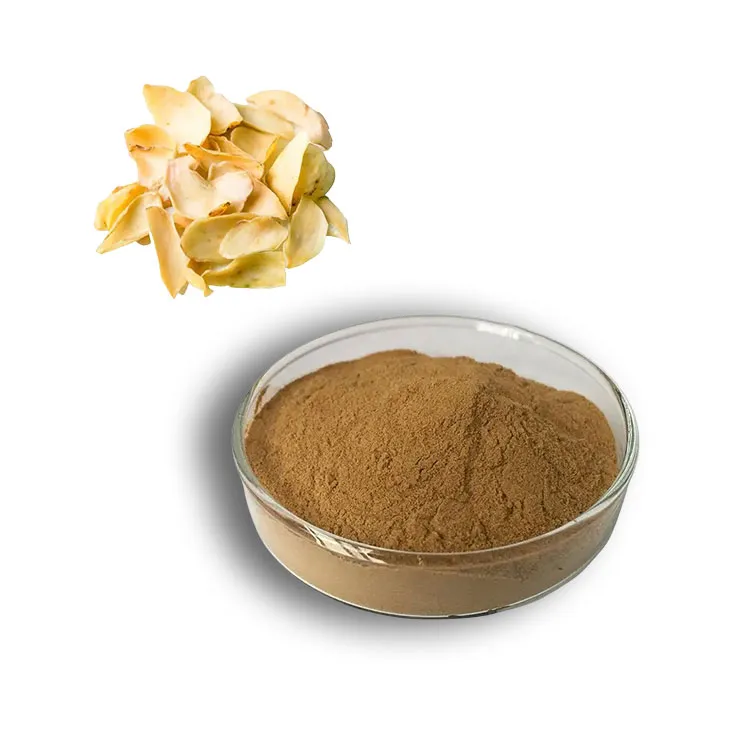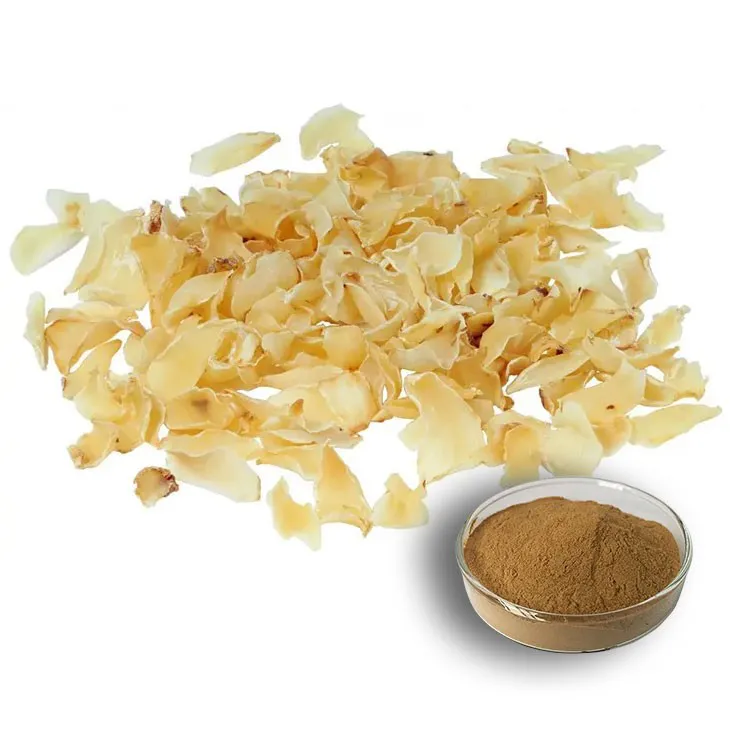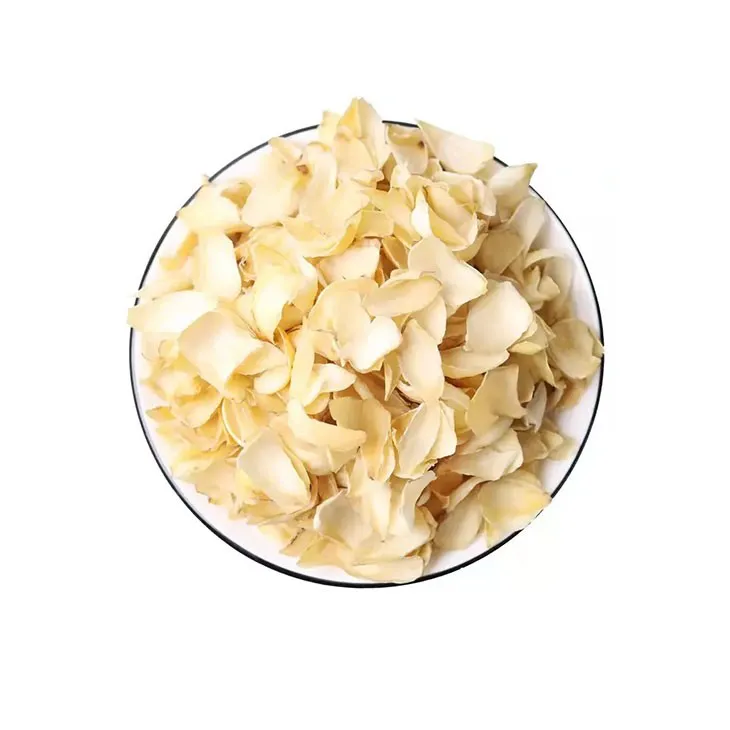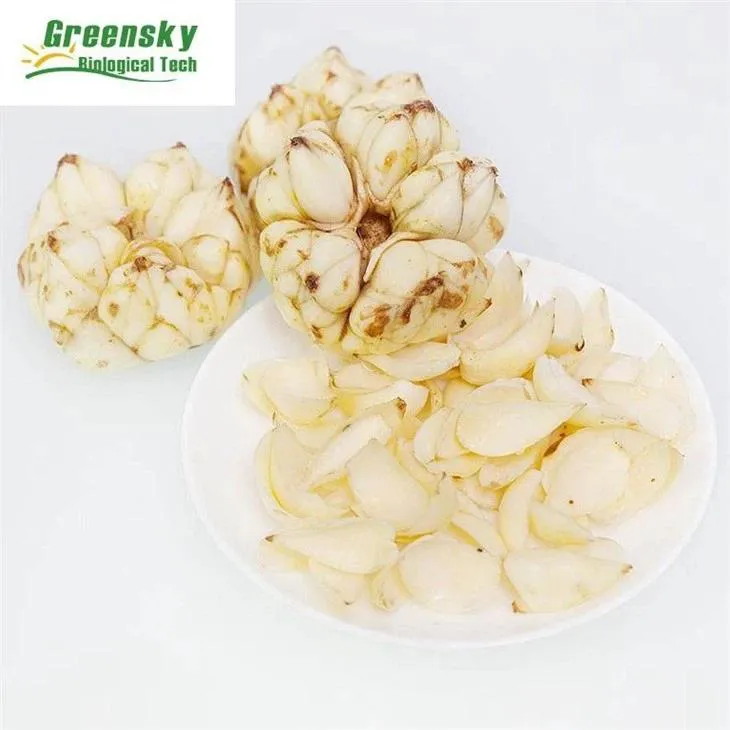- 0086-571-85302990
- sales@greenskybio.com
Expert Tips for Effective Wholesale Purchasing of Lily Extract.
2024-12-21

Effective wholesale Lily extract procurement is crucial for many industries. This article offers expert tips, covering aspects like quality assessment, supplier selection, and cost - effectiveness. Discover how to ensure a seamless procurement process for Lily extract.
1. Understanding Lily extract
Lily extract is derived from various lily species and contains a rich array of bioactive compounds. It has been used in traditional medicine for centuries and is now finding applications in the cosmetics, pharmaceutical, and food industries.
Key Components of Lily Extract
Some of the important components in lily extract include alkaloids, flavonoids, and polysaccharides. These components are responsible for its various properties such as antioxidant, anti - inflammatory, and skin - nourishing effects.

2. Quality Assessment
2.1. Purity
One of the first aspects to consider when assessing the quality of lily extract is its purity. A high - quality lily extract should have a high concentration of the active ingredients and a low level of impurities. Impurities can include other plant materials, pesticides, or heavy metals. Testing for purity can be done through various analytical methods such as high - performance liquid chromatography (HPLC).
2.2. Potency
The potency of the lily extract is directly related to its effectiveness in various applications. It is measured by the concentration of the bioactive compounds. For example, in the case of a lily extract used for its antioxidant properties, a more potent extract will have a higher concentration of antioxidant - rich flavonoids. Suppliers should be able to provide data on the potency of their products.
2.3. Consistency
Consistency in the quality of lily extract is essential, especially for industries that require a uniform product. This means that each batch of the extract should have similar levels of active ingredients and properties. Manufacturing processes and quality control measures play a crucial role in ensuring consistency. Buyers should inquire about the supplier's quality control procedures and batch - to - batch variation.

3. Supplier Selection
3.1. Reputation
When choosing a supplier for wholesale lily extract, reputation is a key factor. A supplier with a good reputation is more likely to provide high - quality products and reliable service. Look for suppliers with positive customer reviews, industry certifications, and a long - standing presence in the market. You can also ask for references from other companies that have purchased lily extract from the supplier.
3.2. Production Capacity
Ensure that the supplier has the production capacity to meet your wholesale requirements. If you plan to order large quantities of lily extract on a regular basis, the supplier should be able to handle the volume without sacrificing quality. Inquire about their production facilities, equipment, and staffing levels.
3.3. Research and Development
Suppliers who invest in research and development are more likely to offer innovative and high - quality lily extract products. They may be able to provide custom - formulated extracts or improved versions of existing products. Ask about their R & D efforts, such as any new extraction techniques or product enhancements they are working on.
3.4. Regulatory Compliance
The lily extract you purchase must comply with relevant regulations, especially in the industries it will be used in, such as food and pharmaceuticals. Make sure the supplier follows good manufacturing practices (GMP), has the necessary certifications (e.g., ISO), and is compliant with food and drug regulations. This helps to ensure the safety and legality of the product.

4. Cost - Effectiveness
4.1. Price Comparison
When it comes to wholesale purchasing, price is an important consideration. However, it should not be the only factor. Compare prices from different suppliers, but also take into account the quality of the product. A seemingly lower - priced product may end up being more expensive in the long run if it has lower quality and requires more to achieve the desired results. Create a price - quality matrix to evaluate different suppliers.
4.2. Volume Discounts
Many suppliers offer volume discounts for wholesale purchases. Negotiate with the supplier to get the best possible deal based on the quantity you plan to order. Understand the discount tiers and how they are calculated. For example, a supplier may offer a 10% discount for orders of 100 - 200 kilograms and a 15% discount for orders over 200 kilograms.
4.3. Hidden Costs
Be aware of any hidden costs associated with the purchase of lily extract. These can include shipping costs,
customs duties (for international purchases), and packaging costs. Ask the supplier for a detailed cost
breakdown so that you can accurately calculate the total cost of the purchase.

5. Sampling and Testing
Before making a large - scale wholesale purchase, it is advisable to request samples of the lily extract from potential suppliers. This allows you to conduct your own quality assessment.
5.1. Sample Quantity
Ensure that the sample quantity is sufficient to carry out all the necessary tests. For example, if you need to test for purity, potency, and consistency, you will need a certain amount of the sample. Typically, a few grams to a few tens of grams may be sufficient depending on the type of tests.
5.2. Testing Laboratories
Choose a reliable testing laboratory to analyze the samples. The laboratory should have the appropriate equipment and expertise in analyzing lily extract. Look for laboratories that are accredited and have a good track record in the industry. They should be able to provide detailed test reports that you can use to evaluate the quality of the product.
6. Contract and Agreement
Once you have selected a supplier, it is important to have a clear contract and agreement in place.
6.1. Product Specifications
Define the product specifications clearly in the contract. This includes details such as the type of lily extract (e.g., from which lily species), the quality parameters (purity, potency, etc.), and the packaging requirements. Any deviation from the specified product should be clearly addressed in the contract, along with the consequences.
6.2. Pricing and Payment Terms
Specify the pricing structure, including any discounts, and the payment terms. Payment terms can include the method of payment (e.g., bank transfer, credit card), the due date for payment, and any penalties for late payment. Ensure that both parties are clear on these terms to avoid any disputes in the future.
6.3. Delivery and Logistics
Outline the delivery schedule, including the expected delivery date and any possible delays. Also, discuss the logistics, such as the mode of transportation (e.g., air, sea, land) and who is responsible for the shipping costs. If there are any special requirements for storage or handling during transit, these should be included in the contract.
6.4. Quality Assurance and Liability
Define the quality assurance measures that the supplier must follow and the liability in case of quality issues. The supplier should be held responsible for providing products that meet the agreed - upon quality standards, and the contract should specify the remedies available to the buyer in case of non - compliance.
7. Relationship Building
Building a good relationship with your lily extract supplier can have many benefits.
7.1. Communication
Maintain open and regular communication with the supplier. This allows you to stay informed about any changes in the product, such as improvements in quality or new formulations. It also gives the supplier an opportunity to understand your needs better and provide more personalized service. Use multiple channels of communication, such as email, phone, and in - person meetings if possible.
7.2. Long - Term Partnership
Aim for a long - term partnership with the supplier. This can lead to more favorable terms, such as better prices, priority in case of supply shortages, and increased cooperation in product development. Long - term partners are also more likely to invest in the relationship and work towards mutual success.
8. Market Trends and Future Outlook
Staying informed about market trends in the lily extract industry can help you make more informed purchasing decisions.
8.1. Increasing Demand
The demand for lily extract is expected to increase in the coming years, driven by the growing interest in natural products in various industries. This may lead to price fluctuations and potential supply shortages, so it is important to plan ahead. Consider establishing long - term contracts or strategic partnerships to secure a stable supply.
8.2. New Applications
Researchers are constantly exploring new applications for lily extract. For example, there may be new discoveries in its use for treating certain diseases or in advanced cosmetic formulations. By keeping an eye on these new applications, you can anticipate future market needs and potentially gain a competitive advantage.
8.3. Sustainability
Sustainability is becoming an increasingly important factor in the lily extract industry. Consumers are more interested in products that are sourced sustainably. Look for suppliers who follow sustainable harvesting practices and have initiatives in place to protect the environment. This can also enhance your brand image if you are using the lily extract in consumer - facing products.
9. Conclusion
Effective wholesale purchasing of lily extract requires careful consideration of multiple factors. By following these expert tips on quality assessment, supplier selection, cost - effectiveness, sampling and testing, contract and agreement, relationship building, and staying informed about market trends, you can ensure a seamless procurement process and obtain high - quality lily extract for your business needs.
FAQ:
Question 1: What are the key factors in quality assessment of lily extract for wholesale?
When assessing the quality of lily extract for wholesale, several key factors should be considered. Firstly, the purity of the extract is crucial. Higher - purity extracts usually have better performance in various applications. Secondly, check for contaminants. This includes heavy metals, pesticides, and other harmful substances. Thirdly, the potency of the active ingredients in the lily extract matters. It should meet the industry standards relevant to its intended use, such as in the cosmetic, pharmaceutical, or food industries.
Question 2: How can one select a reliable supplier for wholesale lily extract?
To select a reliable supplier for wholesale lily extract, start by looking at their reputation in the market. Check online reviews, testimonials, and industry rankings. A supplier with a long - standing positive reputation is more likely to be reliable. Secondly, verify their manufacturing processes. Ensure they follow good manufacturing practices (GMP) and have proper quality control measures in place. Thirdly, consider their certifications. Certifications such as ISO standards can indicate that the supplier adheres to international quality and safety norms. Also, assess their ability to supply consistently in terms of quantity and delivery time.
Question 3: What are the cost - effective strategies in wholesale lily extract purchasing?
For cost - effective wholesale lily extract purchasing, one strategy is to compare prices from multiple suppliers. However, don't solely base your decision on the lowest price. Consider the quality in relation to the price. Another strategy is to buy in larger quantities if possible, as this may often lead to volume discounts. Additionally, look for suppliers who offer special deals or promotions. It's also important to factor in the long - term cost, including potential costs for storage and handling, to ensure overall cost - effectiveness.
Question 4: How to ensure the safety of lily extract during wholesale procurement?
To ensure the safety of lily extract during wholesale procurement, demand safety data sheets from the supplier. These sheets should provide information on the potential hazards of the product, handling instructions, and emergency procedures. Inspect the packaging to ensure it is proper and can protect the extract from contamination and degradation. Also, make sure the supplier follows all relevant safety regulations in the manufacturing and storage of the lily extract.
Question 5: What are the common uses of lily extract and how does it influence the procurement?
Lily extract has various common uses. In the cosmetic industry, it is often used for its skin - softening and moisturizing properties. In the pharmaceutical industry, it may be used for certain medicinal properties. In the food industry, it can be used as a flavoring or additive. When procuring lily extract, understanding its intended use is crucial as it determines the required quality standards. For example, if it's for pharmaceutical use, the extract needs to meet strict regulatory requirements regarding purity and potency compared to when it's for food use.
Related literature
- Quality Control of Botanical Extracts: A Review"
- "Supplier Selection in the Herbal Extract Industry: Best Practices"
- "Cost - effectiveness Analysis in Procurement of Natural Extracts"
- ▶ Hesperidin
- ▶ citrus bioflavonoids
- ▶ plant extract
- ▶ lycopene
- ▶ Diosmin
- ▶ Grape seed extract
- ▶ Sea buckthorn Juice Powder
- ▶ Beetroot powder
- ▶ Hops Extract
- ▶ Artichoke Extract
- ▶ Reishi mushroom extract
- ▶ Astaxanthin
- ▶ Green Tea Extract
- ▶ Curcumin Extract
- ▶ Horse Chestnut Extract
- ▶ Other Problems
- ▶ Boswellia Serrata Extract
- ▶ Resveratrol Extract
- ▶ Marigold Extract
- ▶ Grape Leaf Extract
- ▶ blog3
- ▶ blog4
- ▶ blog5
-
Pure 85% Tomentil Extract.
2024-12-21
-
Saffron Extract Powder
2024-12-21
-
Coix Seed Extract
2024-12-21
-
Maca Extract
2024-12-21
-
Ivy Extract
2024-12-21
-
Acerola Juice Powder
2024-12-21
-
Marigold Extract
2024-12-21
-
Clove Powder
2024-12-21
-
Longan Extract
2024-12-21
-
Horse Chestnut Extract
2024-12-21
-
Citrus Aurantium Extract
2024-12-21





















